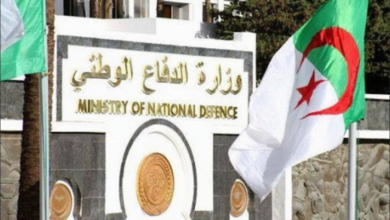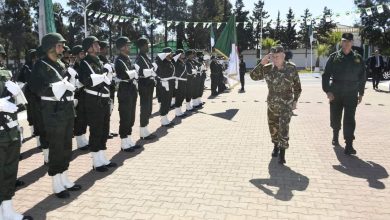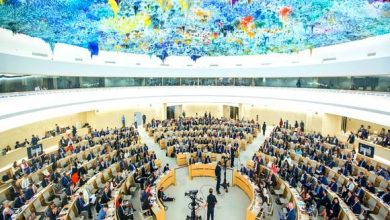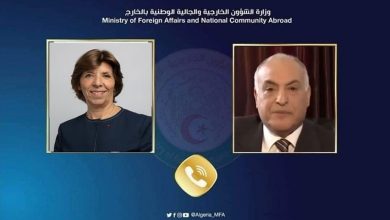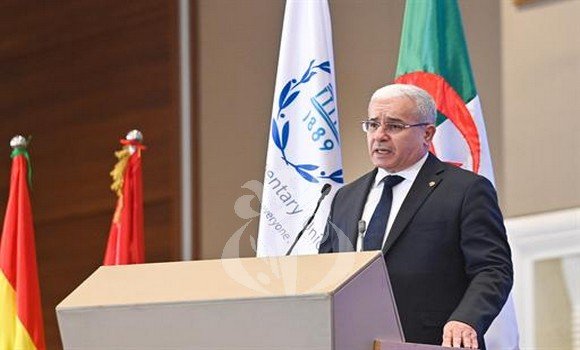
The president of the People’s National Assembly (APN), Brahim Boughali, said on Sunday in Algiers that Algeria has adopted an interactive and integrated policy to support efforts to fight terrorism and violent extremism in the Sahel region, through its unceasing support to the strengthening of the national potential of the countries of the region and the intensification of operational regional cooperation.
Speaking at the opening of the 2nd The works of the 2nd meeting of the series of meetings “The Call of the Sahel,” organised at the International Conference Centre (CIC) “Abdelatif Rahal” in Algiers, on ” Engaging Communities in the Prevention of Violent Extremism and Adressing the Conditions conjducive to terrorism””, Mr. Boughali stressed that Algeria “has adopted an interactive and integrated policy to support efforts against terrorism and violent extremism in the Sahel region, through its unceasing support to the strengthening of the local population’s capacity to fight against terrorism and violent extremism.
Boughali stressed that Algeria “has adopted an interactive and integrated policy to support efforts to combat terrorism and violent extremism in the Sahel region, through its unceasing support for the strengthening of the national potential of the countries of the region and the intensification of operational regional cooperation.
In the same context, he emphasised “the intensification by Algeria of regional operational cooperation through the Joint Operational Staff Committee (JOSC) and the coordination and communication unit, in addition to contributing to the addressing of the root causes of this dangerous scourge by supporting development efforts”.
Mr. Boughali added that “Algeria is committed to implementing inclusive structuring projects, an approach affirmed by the strategic orientation expressed by the President of the Republic, Mr. Abdelmadjid Tebboune, by devoting one billion US Dollars to support development in African States through the Algerian Agency for International Cooperation for Solidarity and Development”.
“The worrying trend in international relations in recent years, and even in recent months, calls for greater vigilance with regard to the multi-faceted challenges facing the Sahel region, which must under no circumstances be turned into an arena of conflict threatening its security and stability,” he argued.
In this regard, he said that “Algeria grants special importance to the development and improvement of regional and international frameworks for combating terrorism and violent extremism, through the African Union (AU) or via the Global Counter-Terrorism Forum (GCTF), in which Algeria co-chairs the working group to strengthen the national capacities of West African countries”.
He also recalled that Algeria hosts many mechanisms aimed at strengthening institutional cooperation between African countries in this area, such as Afripol and the African Centre for the Study and Research on Terrorism (ACSRT).
In the same context, Mr Boughali said that “Algeria’s approach is inseparable from the pivotal and important role played by parliamentary institutions, local leaders and notables in promoting dialogue, awareness and guidance to involve local communities in this noble endeavour in order to ensure security, development and a decent life for the peoples of the Sahel countries”.
The President of the Assembly stressed that the Sahel region had witnessed “a serious deterioration of the security situation over the past years through the combination of many factors, including increased tension and poverty, weak economic performance, fragile national capacities, the impacts of climate change, desertification, drought, loss of biodiversity and the fallout from the Covid-19 pandemic”.
He said that these factors “reduce opportunities for access to essential services, including education, health, and employment opportunities, which negatively impacts people’s trust in their governments and allows extremist terrorist movements to use those failures, recruit and increase their sources of funding.
For Mr Boughali, ” the time has come to unify strategies and adopt an inclusive approach aimed at achieving tangible results, notably in strengthening the capacities of the countries of the region and helping them to implement local and national development plans depending on the involvement of local communities and their representatives in defining priorities and taking charge of them “.
“In their capacity as representatives of the people, parliamentarians must make the voice of the different categories of society heard and put an end to all forms of marginalisation”, stressing the importance of “supporting religious leaders of all backgrounds against the extremist discourse conveyed by terrorist groups”.


